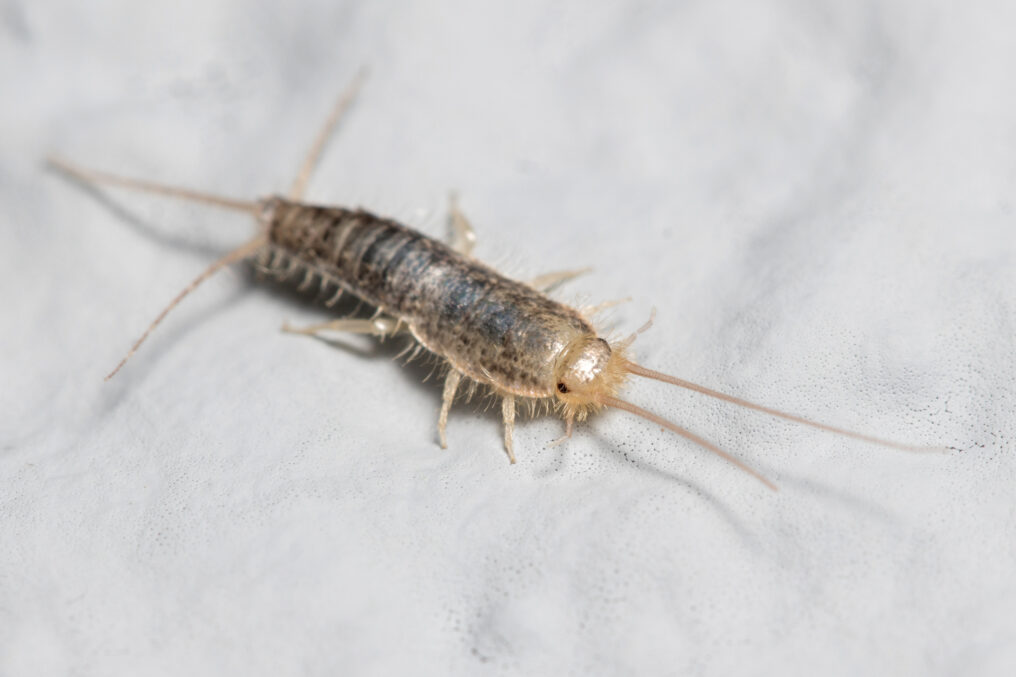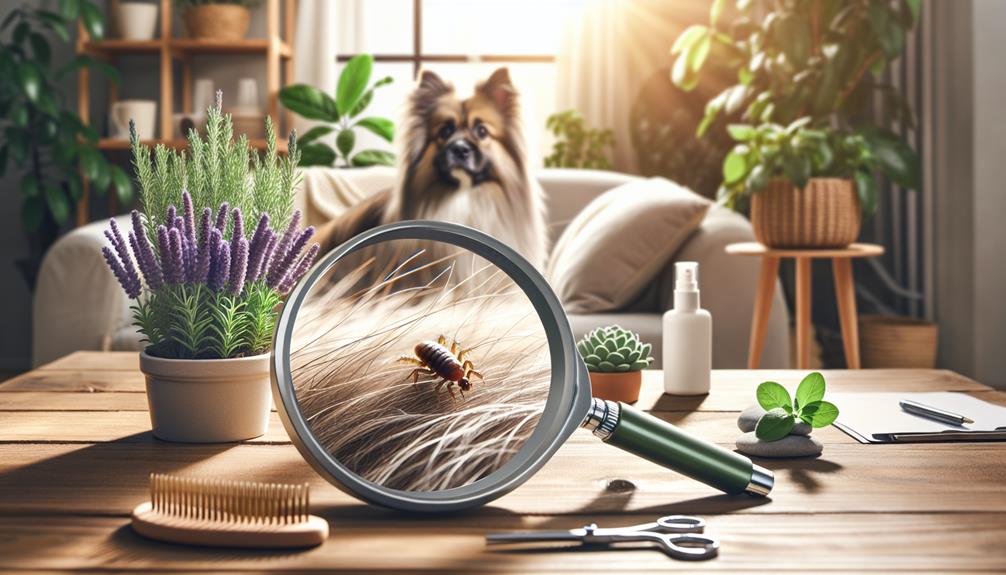Table of Contents
Have you ever seen a small, silver-grey insect scurrying around your home? If so, it was likely a silverfish. Every year, homeowners across the UK suffer from an infestation of these little bugs. But don’t worry – while it can cause damage to our belongings and homes, they won’t hurt us. Read on to learn more about these creatures and the steps we can take to prevent an invasion in our own homes.
Key Takeaways
- They are harmless and do not pose a health threat to humans.
- It can cause allergic reactions due to the protein tropomyosin in their exoskeletons.
- It can damage books, fabrics, and other household items by feeding on them.
- Preventive measures such as reducing humidity, sealing cracks, and storing food properly can help prevent their infestations.
Are silverfish dangerous?
Silverfish are not known to bite humans or animals, so they are not considered dangerous. However, they can cause significant damage to possessions and buildings by feeding on starches, proteins, and carbohydrates. It is also important to note that it can be harmful to pets if ingested.
Do silverfish crawl in your ears?
Rest assured, They cannot worm their way into your ears. These tiny creatures simply lack the physical capability to do so. It’s crucial to grasp that they thrive in damp and moist environments, but they can also inhabit dry areas like attics and basements. Typically active during the night, these nocturnal creatures sustain themselves by devouring carbohydrates, starches, and proteins.
Are silverfish harmful to pets?
Although They can’t cause physical harm to your pets, consuming them may still make them feel unwell. If you notice your pet exhibiting any signs of an allergy or discomfort after eating a silverfish, contact your veterinarian immediately. They are often considered pests due to their tendency to eat carbohydrates, starches, and proteins found in fabrics and paper products. For this reason, it is important to implement pest control measures such as removing food sources and sealing cracks and crevices where they may enter the home. To prevent your pet from developing an allergy or becoming ill from eating them, be sure to take steps for proper pest control to reduce their presence in the home. Additionally, if you have noticed any signs of infestation such as damage to paper products or clothing or small holes in books or wallpaper, seek the help of a professional exterminator right away.
What attracts silverfish?
They are attracted to damp, dark spaces with plenty of cellulose to eat. These places can include basements, attics, bathrooms and kitchens. They’re also drawn to paper products, such as books, wallpaper and cardboard boxes. They also thrive in areas that have a high humidity level. If you notice it or signs of an infestation near these areas, it may be time to take action.
The good news is there are ways to get rid of their and prevent them from coming back. Understanding what attracts it is key to preventing an infestation in your home or business. By taking proactive steps to reduce humidity levels and eliminate their food sources, you can keep these pests away for good!
How to get rid of silverfish
If you’ve noticed an infestation in your home, it’s time to take action. You can use insecticides to get rid of it or try natural remedies like sealing up entry points and using dehumidifiers.
Insecticides
Insecticides can be used to control their infestations, but it’s important to follow safety instructions and precautions when using them. Insecticides come in many forms, such as sprays, dusts, and baits. Their poison is a common insecticide used to get rid of it . It works by killing them on contact or after they ingest it. Their removal products are also available that contain repellents which drive away the pests from your home. For more severe infestations, professional pest control services should be hired to ensure the complete elimination of the insects. Taking these steps will help protect you and your family from potential harm caused by their infestations.
Natural Remedies to Get Rid of Silverfish
Natural remedies such as diatomaceous earth, cedar chips, essential oils, and boric acid powder can be used to help get rid of it. Diatomaceous earth is a natural insecticide that kills them on contact. Cedar chips or sachets placed in infested areas can also help repel them. Essential oils like lavender or citrus are effective deterrents when applied around the home. As a long-term solution, boric acid powder can be spread around the home as well. These natural remedies offer an easy and safe way to keep your home free of them without the use of harsh chemicals. Remember, they aren’t dangerous to humans but they do cause damage to books, paper products and fabrics so it’s important to take steps to prevent an infestation from occurring in the first place!
Why do they like it in your home?
They are attracted to dark, moist places in your home because they need moisture and food to survive. They can get into small spaces, like crevices behind appliances or where walls meet the floor, and stay there until they find something to eat. They are able to access these hidden areas due to their flat bodies that can easily slip through even the smallest cracks. What attracts their bugs is a combination of dampness, darkness, and warm temperatures; all of which create an ideal environment for them. These pests also feed on sugary substances like book glue, carpet fibres, household glue, paint, fabrics, and furniture. They will leave their eggs in dark moist areas where they can then hatch and reproduce frequently throughout their lives. Their infestations should be prevented by limiting moisture around your home as well as sealing any potential entry points with caulk or other materials. Taking these steps should help keep them out of your home so you don’t have to worry about them causing damage or health problems.
How do silverfish get inside the house?
You may accidentally bring them into your home if you purchase infested items such as paper products, fabrics, and other starch-or sugar-rich objects. They are attracted to these items for their food source and can be easily transferred from one place to another. They also sometimes make their way indoors in search of food by themselves. If you don’t take the necessary precautions when bringing items into your home, then it’s possible that it could hitch a ride inside with them. To prevent a potential their infestation, inspect any new items before bringing them into the house and look out for signs of damage or musty odours which may indicate that there are already their present. Disposing of any infested items immediately is key to keeping your home free from them and other pests.
Tips to prevent silverfish
To keep them away, take some preventative steps such as reducing humidity levels in the home, repairing any leaks or moisture issues, storing food in airtight containers, and sealing cracks and crevices to block entry. It’s also important to reduce clutter and eliminate potential hiding spots for these pests. Plastic storage containers are a better option than cardboard boxes when it comes to keeping items safe from silverfish bugs in the house. Properly ventilating bathrooms and kitchens is another way to deter their infestations, as well as keeping basements and attics clean and dry.

Silverfish and our health
They are harmless to humans, as they do not bite or sting. However, some people may experience allergic reactions due to their allergens. Therefore, it is important to be aware of the presence of them in your environment and take necessary precautions if you have any allergies.
Silverfish do not bite or sting
Despite their intimidating appearance, they do not pose any health threat as they don’t bite or sting. They aren’t harmful to humans but can be damaging to books and fabrics if left unchecked. Knowing when and where to look is key to keeping you safe from these pests!
Allergens
If you have allergies, be aware that they can cause an allergic reaction due to the protein found in their moulted exoskeletons. This protein is known as tropomyosin and it can mix with other allergens, creating a recombinant allergen. Those who are sensitive or allergic to dust mites may also be sensitive to silverfish bugs. They debris including their excrement and moulted skins may act as irritants or allergens for some people. To identify an infestation, look out for signs such as their scales, yellow stains on fabric caused by feeding, small holes or irregular shapes in books or wallpaper, and a musty odour in the area.
Silverfish Frequently Asked Questions
What types of materials can silverfish damage?
They can damage paper products, fabrics, and books. They cause small holes or irregular shapes in wallpaper, yellow stains on fabric from feeding, and create musty odours in infested areas.
How long can silverfish live without food?
Silverfish can live without food for up to a year. They rely on their stored energy reserves to survive and are able to go into a hibernation-like state if needed. With their silvery scales and fish-like movements, silverfish are fascinating creatures that can be found in damp, dark places.
How do I know if I have a silverfish infestation?
If you notice silverfish scales, excrement, or damage to paper and fabrics, it could be a sign of infestation. Look for yellow stains on fabric and small holes in books or wallpaper. Musty odours can also indicate the presence of silverfish.
What are the most effective methods for getting rid of silverfish?
Stop stressing over silverfish – they won’t hurt you! But to get rid of them, try vacuuming regularly, using pesticide-free traps, and sealing any cracks or openings in your home. Plus, keep humidity levels low to make your space less attractive for the pesky critters.
Are there any natural remedies to repel silverfish?
Yes, there are some natural remedies to repel silverfish. Essential oils like peppermint, eucalyptus and tea tree oil can be used to create a barrier that silverfish won’t cross. You can also use diatomaceous earth and boric acid to help keep them away. Try these simple solutions for a safe way to protect your home from silverfish!
You may also enjoy reading this article
Was This Article Helpful?
- Please provide feedback and comments to help us improve our content.
- Share your experiences and any additional tips you have for dealing with pests.
Share this Post



